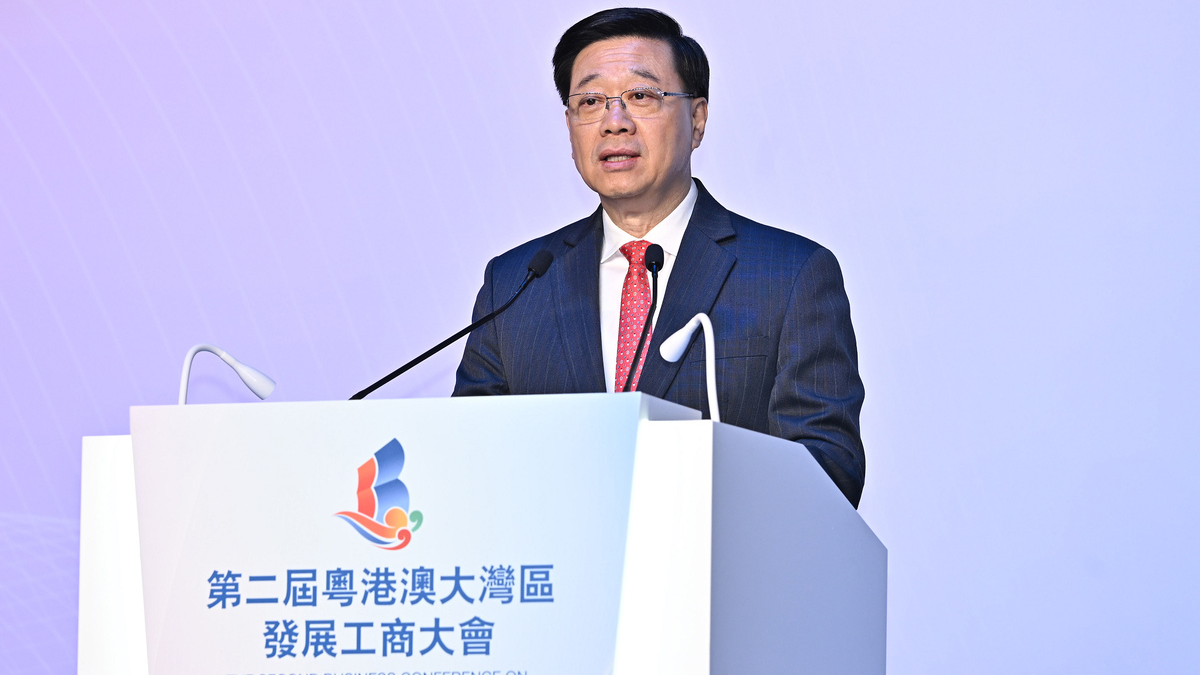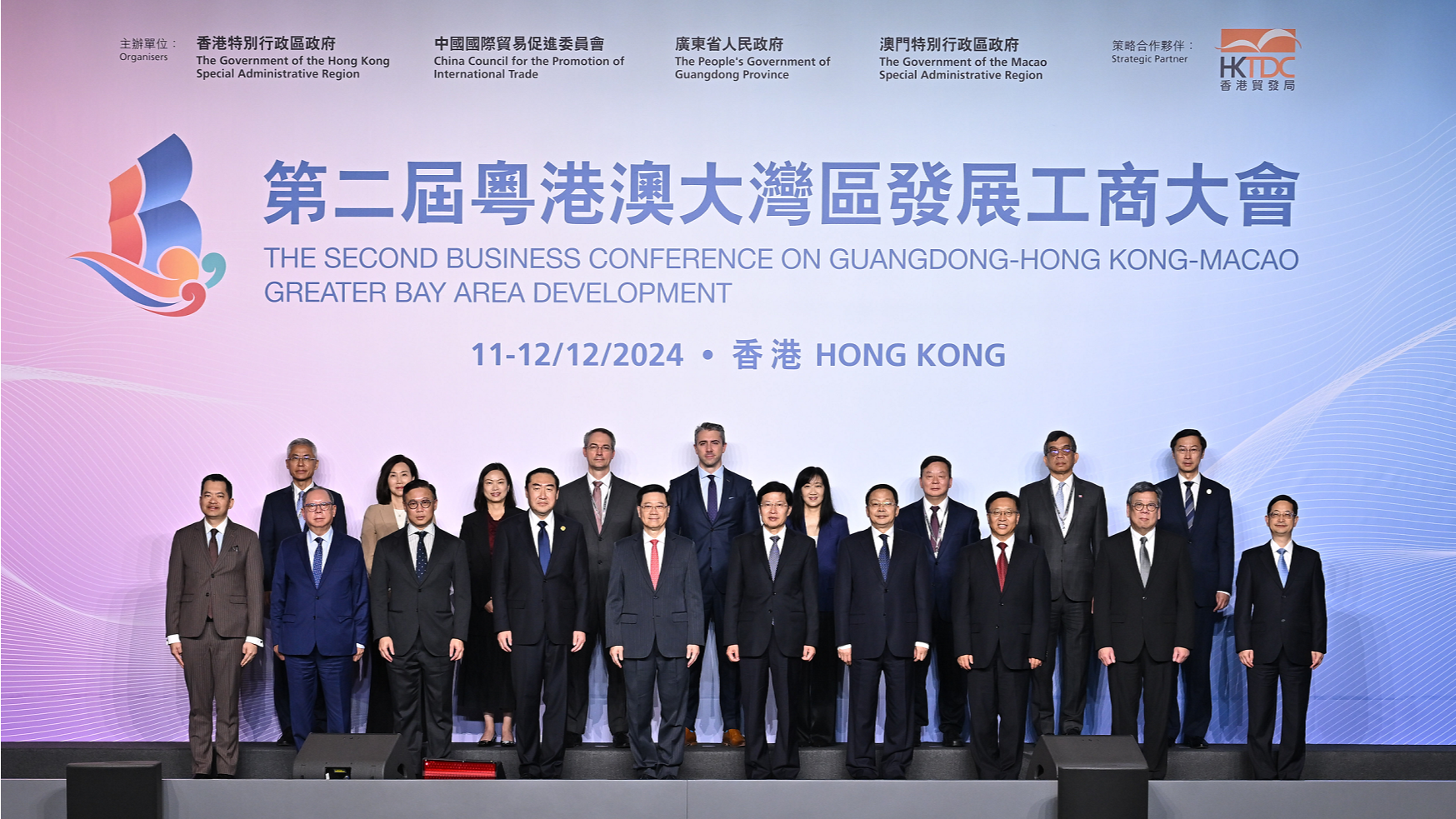
Senior Chinese officials pledged at a forum on Wednesday deeper integration of the Hong Kong Special Administrative Region into the Guangdong-Hong Kong-Macao Greater Bay Area, positioning the metropolis as a showcase for Chinese-style modernization.
The opening day of the Second Business Conference on the Guangdong-Hong Kong-Macao Greater Bay Area Development saw the signing of three cooperation agreements, including a memorandum of understanding between the China Council for the Promotion of International Trade and the Department of Justice of the Hong Kong SAR government. The pact aims to boost cross-border trade and investment and support mainland commercial law development.
Hong Kong Chief Executive John Lee Ka-chiu said the special administrative region’s unique position under the principle of “one country, two systems” makes it a promoter of the Bay Area’s development.
He also highlighted Hong Kong’s role as both contributor and beneficiary in the regional economic integration.
The city’s leader pledged to leverage Hong Kong’s professional services and collaborate with the Macao SAR and the Chinese mainland to enhance the GBA port cluster’s international competitiveness.
Hong Kong is also deepening aviation partnerships, developing new sea-air cargo routes with Dongguan in Guangdong province, and advancing the Hong Kong Dongguan Logistics Park project. An equity cooperation agreement signed between the Airport Authority Hong Kong and Zhuhai Transportation Holding in November aims to strengthen passenger and cargo services across the region.
“These integrated transport networks will transform the GBA into a world-class logistics hub,” Lee said.
He added that the bay area’s GDP exceeded 14 trillion yuan ($1.93 trillion) last year, rivaling the world’s 10th-largest economy, with the GBA’s population of over 86 million.
Earlier this month, the central government resumed multiple-entry permits for Shenzhen residents visiting Hong Kong and extended this to nonpermanent residents holding residence permits, enabling over 10 million Shenzhen residents to visit Hong Kong freely, “injecting new momentum into Hong Kong’s tourism, dining, and retail sectors”, Lee noted.

Gao Yunlong, a vice-chairman of the National Committee of the Chinese People’s Political Consultative Conference, the country’s top political advisory body, said the central government will continue to back the Hong Kong and Macao SARs’ integration into national development plans, aiming to transform the GBA into “a strategic pivot for the country’s new development paradigm and a model for Chinese-style modernization”.
Gao proposed several initiatives to expand cooperation and development opportunities in the GBA, including strengthening regional connectivity, optimizing border checkpoint operations, streamlining travel permit arrangements, improving policies for Macao and Hong Kong vehicles entering the mainland, and advancing financial-market integration.
Gao called for a globally competitive tech environment in the GBA, pushing for closer integration of technology and industry while speeding up research commercialization and industrial upgrading.
“China will commit to building a first-class business environment based on market principles, rule of law, and international standards,” Gao said. He announced plans to further relax market access restrictions, eliminate limitations on foreign investment in manufacturing, and accelerate the opening up of service sectors, including telecommunications, “encouraging foreign enterprises to establish deeper roots in China”.
The two-day conference, drawing more than 1,000 participants, focuses on new quality productive forces, financial integration, dispute resolution, and intellectual property protection in the GBA.
Contact the writer at tianyuanzhang@chinadailyhk.com



